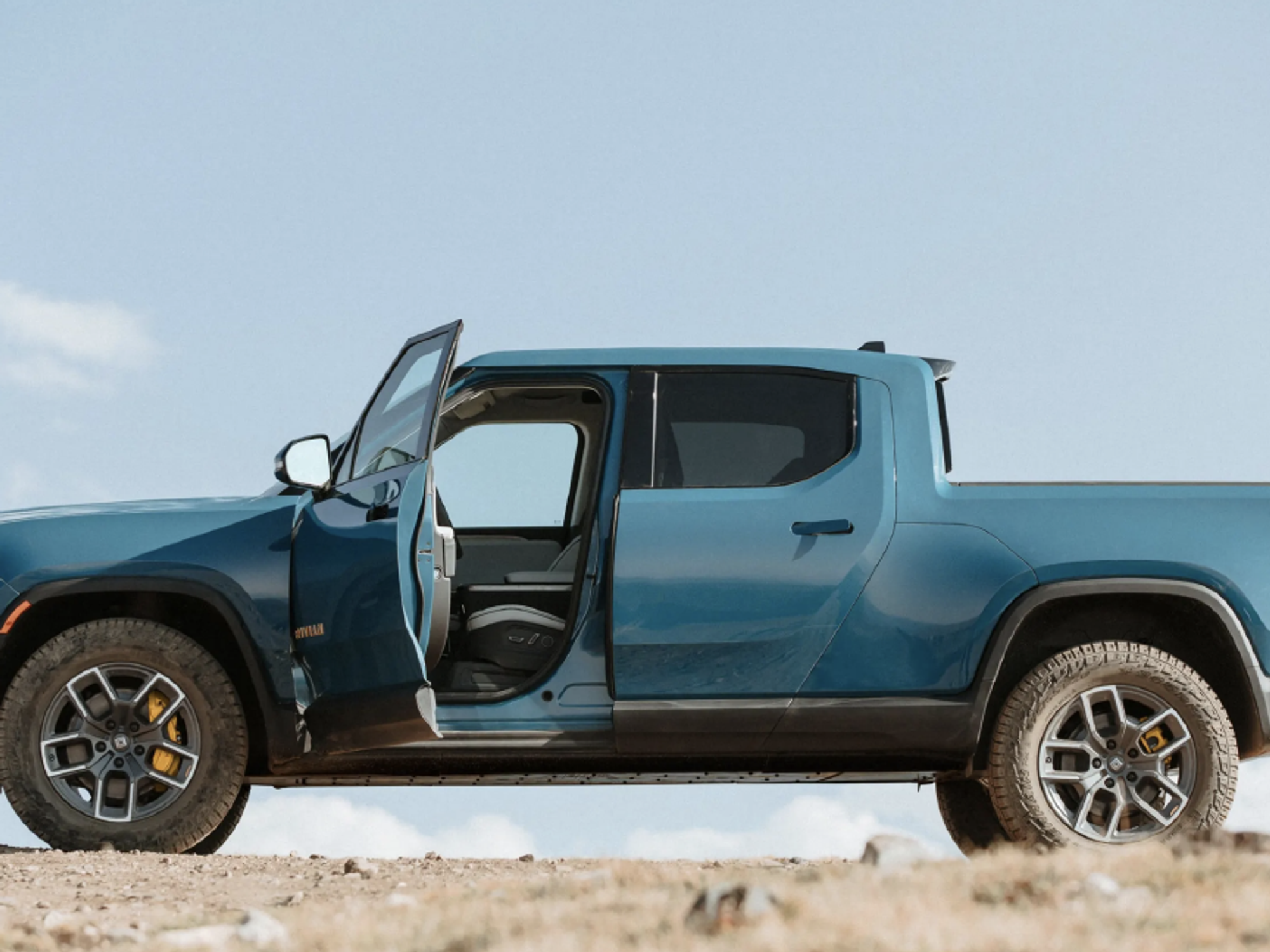Rivian Is Ineligible for the Inflation Reduction Act’s $7,500 Rebate. Here’s What that Means for the Automaker
David Shultz reports on clean technology and electric vehicles, among other industries, for dot.LA. His writing has appeared in The Atlantic, Outside, Nautilus and many other publications.

This is the web version of dot.LA’s daily newsletter. Sign up to get the latest news on Southern California’s tech, startup and venture capital scene.
Since the Inflation Reduction Act was signed into law last year, there’s been no shortage of analysis of which vehicles will qualify for the $7,500 tax credit included in the legislation. Yesterday, the new rules actually went into effect, and the IRS issued its most up-to-date guidance on who’s in and who’s out. Unfortunately for Rivian, it seems neither their R1T electric truck nor their R1S SUV will qualify for the tax credit.
Eligibility depends on a host of factors including the total cost of the vehicle: the buyer’s income level, the size of the vehicle’s battery, etc. But the key hurdle that Rivian fails to clear is the “Critical Minerals and Battery Component Requirement.” This piece of the legislation is broken into two parts (each worth $3,750 of the credit) and mandates that:
- “The critical minerals contained in the battery must be extracted or processed in the United States or a country with which the United States has a free trade agreement, or be recycled in North America.”
- “The applicable percentage of the value of the battery components must be manufactured or assembled in North America.”
In other words, you’ve got to mine the minerals for the batteries in the U.S., and you’ve got to build the batteries in the U.S. That said, this year only 40% of the mining and assembly needs to take place in North America, but every year that number increases by another 10%.
Up to this point, there’s been a lot of speculation as to whether or not Rivian would meet these requirements. The automaker has historically sourced most of its batteries from Samsung SDI, which builds its batteries in South Korea, but there had been rumors of Samsung setting up a plant in Normal, IL next to Rivian’s factory. However, it seems those rumors turned out to be just that, and now Rivian, along with Volkswagen, Nissan, and BMW will be ineligible for the rebate.
While this is obviously bad news for Rivian, it’s not immediately catastrophic. The automaker has stopped publicly divulging its backlog, but last fall it was estimated to be over 100,000 units. If that’s the case, even if Rivian hits its ambitious production targets of 50,000 vehicles for 2023, it wouldn’t even be halfway through the existing demand. And that doesn’t take into consideration the cars Rivian has sold this year.
The backlog buys Rivian time to set up new battery supply chains to regain eligibility for the rebate. And because Rivian has typically purchased its batteries from the spot market rather than engaging in long term contracts with suppliers, it should have the flexibility it needs to make that transition…provided it can find a suitable deal.
Rivian’s loss of rebate eligibility comes at a somewhat inopportune time for the company as well. This week Tesla announced yet another round of price cuts, and while none of Elon’s models compete directly with the R1T or R1S from Rivian, the move signals the industry’s willingness to engage in price wars, which should make a $7,500 rebate from the government even more important than ever to Rivian.
Things haven’t been going great on Wall Street either: This week a number of major analysts downgraded Rivian’s stock and shares have lost 11% since last Thursday. The company is expected to report Q2 earnings early next month.
- EXCLUSIVE: Fisker CEO Isn't Worried About Tesla Competition ›
- Electric Vehicle Industry Heading Toward Major Battery Shortage, Rivian CEO Says ›
- Will Rivian Survive Long Enough to Launch Its Next Model? ›
- Rivian Hires New COO Amid Turbulent Month ›
- Rivian Finds a Way to Qualify for Partial EV Tax Rebate - dot.LA ›
- Rivian Outperforms EV Competitors with 2023 Q1 Earnings - dot.LA ›
David Shultz reports on clean technology and electric vehicles, among other industries, for dot.LA. His writing has appeared in The Atlantic, Outside, Nautilus and many other publications.




 Image Source: Revel
Image Source: Revel
